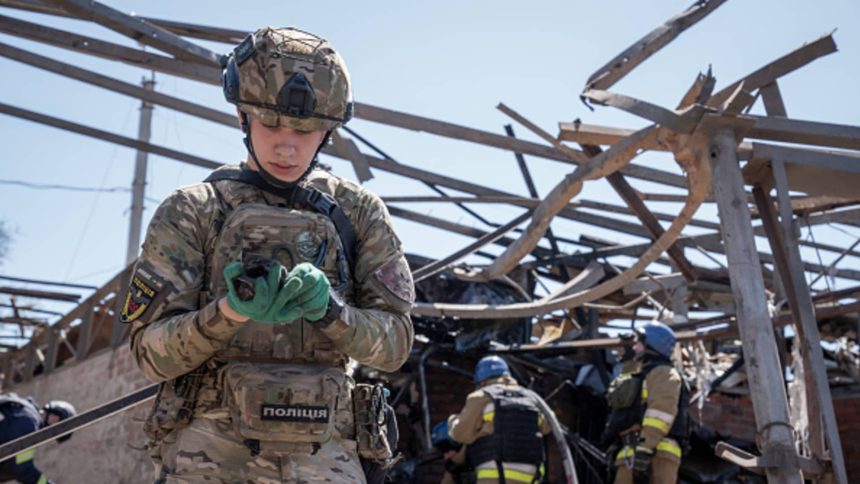Russian Deputy Foreign Minister Sergei Ryabkov on Monday warned the U.S. against the potential “fatal consequences” of allowing Kyiv to deploy U.S.-supplied weapons against targets inside Russia.
“I would like to warn American leaders against miscalculations that could have fatal consequences. For some unknown reason, they underestimate the seriousness of the rebuff they may receive,” Ryabkov said, according to Google-translated comments carried by Russian state news agency Tass.
He noted that Russian President Vladimir Putin had repeatedly addressed the topic, giving “a very significant warning, and it must be taken seriously, with the utmost seriousness.”
Last week, U.S. Secretary of State Antony Blinken said the White House had approved a Ukrainian request to deploy U.S.-supplied weapons against targets in Russian territory, on the border near Ukrainian city Kharkiv. This use was authorized for the limited purpose of defending Kharkiv.
Kharkiv, the second-largest city in Ukraine, is just 30 kilometers (18.6 miles) away from Russia and has faced brutal and intensifying daily offensives, including numerous airstrikes.
“The hallmark of our engagement, our support for Ukraine over these more than two years has been to adapt and adjust as necessary to meet what’s actually going on on the battlefield, to make sure Ukraine has what it needs, when it needs it, to do that deliberately and effectively. And that’s exactly what we’re doing in response to what we’ve now seen in and around the Kharkiv region,” Blinken said during a press conference.
“Over the past few weeks, Ukraine came to us and asked for authorization to use weapons that we’re providing to defend against this aggression, including against Russian forces that are amassing on the Russian side of the border and then attacking into Ukraine. And that went right to the [U.S.] president. And, as you’ve heard, he’s approved the use of our weapons for that purpose.”
Ukrainian President Volodymyr Zelenskyy acknowledged the U.S. concession during a press conference in Sweden last week.
“I think, anyway, this is some step forward to that goal which we discussed before: to make [a] possibility to defend our people who live in the villages through the border line, and that’s it. For today, that’s it,” he said.
The softening of Washington’s stance led Germany to also authorize Ukraine to hit some targets on Russian grounds with the long-range weapons that Europe’s leading economy is supplying, the Associated Press reported. Germany also only specifically allows this use for the purpose of defending Kharkiv.
The U.S. and European allies have supplied Kyiv with military support and arsenal to defend itself throughout Moscow’s full-fledged invasion, while also avoiding outright endorsements of deploying their weapons into Russian territory — which could instigate Moscow’s retaliation and escalate the conflict.
Western nations have likewise shirked from the formal deployment of NATO troops in Ukraine, barring the isolated comments of French President Emmanuel Macron — and recent signals from Polish Foreign Minister Radoslaw Sikorski — that countries should not rule out this possibility.
Russia is also widely believed to be using Iran-made Shahed drones in its hostilities against Ukraine. Tehran says it did not provide weapons for this purpose.
The change in stance on deploying Western weapons into Russian territories has given rise to questions over whether the F-16 fighter jets expected imminently in Ukraine will also be permitted to strike on Russian soil.
“I’m not sure that for today we have [the] possibility to use these jets on the territory of Russia, we will see. We began to speak to speak about it, and I think that using any weapon, Western kind of weapon, on the territory of Russia, it’s … it’s a question of time, I think so,” Zelenskyy said last week, arguing that Russian troops can otherwise continue capitalizing on carrying out offensives from borderline positions. “This way, they attack, and we can’t.”
Read the full article here




